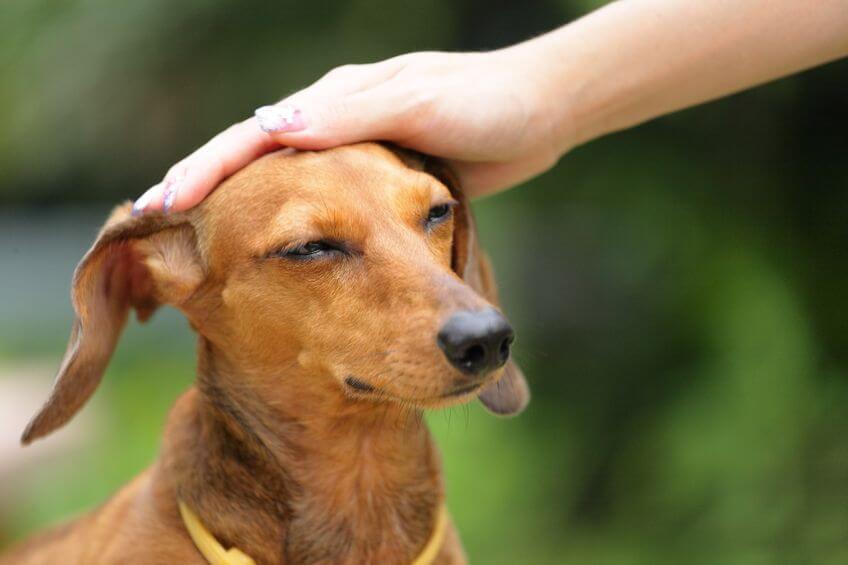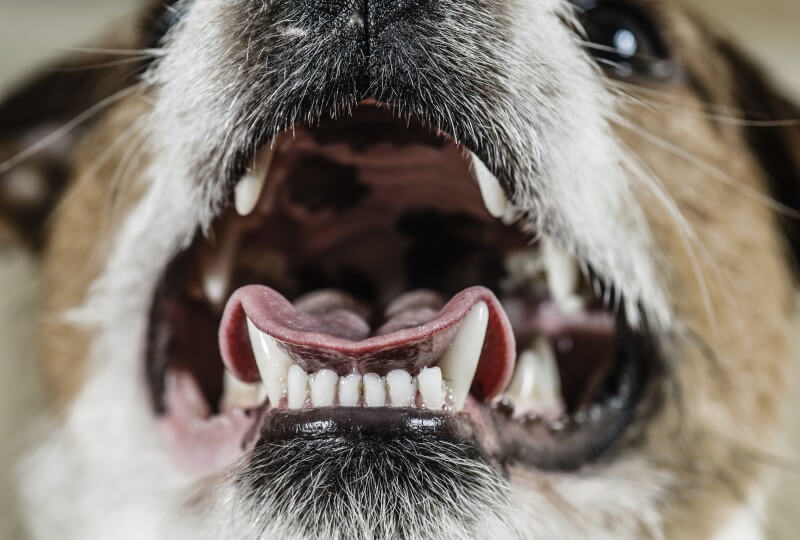Why is my dog chattering his teeth
Your dog is chattering his teeth and you don't know why or how to make him stop this behavior?
There are always explanations and above all solutions to every problem you encounter with your dog. We will see here how to answer your problem: we will see first of all why a dog is led to clack its teeth, what it means and especially what to do if it happens frequently.
My dog is chattering his teeth: why?
Clacking out of fear
In general, teeth chattering is often associated with a state of stress in the dog. Teeth chattering can then be accompanied by trembling and a general state of alertness. But be careful, here, the fact of chattering teeth will only be the visible part of the iceberg. If you don't want to stop this behavior, it will be much more efficient and productive to find the cause of your dog's stress in order to solve the problem in depth and not on the surface.
Teeth chattering to communicate
Along with many other signals such as growling or barking, teeth chattering is one of the communication tools a dog can use to express discomfort. Teeth snapping can be observed during confrontations/encounters between two dogs for example or when someone makes inappropriate contact with a dog. In this case, the snapping of the teeth will be a kind of shield for the dog, which it will use to make the object of its discomfort go away. This signal will often be accompanied by other avoidance signals such as growling, nose licking, yawning, backing away, barking, etc.
Teeth chattering is a way to vent excess energy
Teeth chattering can also be observed when the dog shows impatience and excitement when approaching an activity he loves: going for a walk, eating, the return of his owner, a play session, etc.
Clacking to get attention
If your dog clacks his teeth when you give him your full attention, he may start clacking his teeth just to get your attention. Be careful because this is often the case with bored dogs!
Clenching teeth to analyze olfactory messages from other dogs
This phenomenon is called "Flehmen", a German term that means raising the upper lip. Clearly, when a dog smells a scent left by a conspecific (especially urine left by a bitch in heat), it uses its sense of smell, but to analyze the scent more accurately, it also uses its palate. To do this, the dog smells a scent, opens its mouth, salivates and curls its upper lip to allow the scent to reach the organ that will allow it to analyze it. And this behavior can be accompanied by teeth chattering.
Chattering teeth because it's too cold
Just like us, dogs can be made to clack their teeth if they are too cold. This is a natural behavior, but you should watch it if you don't think the temperature warrants such shaking and chattering of teeth. The dogs most affected by this teeth chattering at low temperatures are those with a very light coat and especially an undercoat that does not guarantee them good protection against the weather.

My dog is chattering his teeth: what can I do?
As mentioned earlier, if you observe a state of stress or fear in your dog, as evidenced by teeth chattering, focus on finding the cause of the stress and then implement habituation, immersion or desensitization therapies to make him more comfortable in certain situations.
Don't hesitate to call on a dog behaviorist to help you through this process, which can be long and delicate to deal with.
If your dog is snapping his teeth to express discomfort and to communicate with his peers or other people (or even you), you should not ignore his message and take it into account.
Indeed, if your dog is snapping at another dog, wait to see if the other dog understands and accepts your dog's "refusal of contact" and if not, intervene and allow your dog to "move on" by diverting him to another behavior, another activity.
It is very important to let dogs communicate with each other, but sometimes, some dogs do not receive the messages correctly and persist in their contact. You must then intervene to avoid any incident.
Also, if your dog is snapping at someone else or at you, you must absolutely stop the action to avoid possible aggression from your dog.
We are fortunate to have animals that warn and alert us when they are not in a comfortable situation, it is up to us not to miss their messages and allow them to be better and more comfortable in this or that situation.
If we don't take into account the warning and avoidance messages and signals of our dogs, they will end up not bothering to warn us anymore and will go straight to aggression to escape from an uncomfortable or even threatening situation for them.
Then, if your dog snaps his teeth out of excitement or to get your attention, it may be a sign of a lack of spending. The solution here is simple: spend your dog, keep him busy when he's home alone or when you can't take care of him.
Don't forget, a dog needs to spend himself physically, mentally and olfactory every day to be fulfilled.
Finally, if you can't find an answer to your dog's teeth chattering after reading the main causes and solutions listed above, I invite you to consult your veterinarian to help you understand your dog's behavior.
Indeed, unexplained teeth chattering can sometimes hide a physical or neurological problem or a potential disease. Your veterinarian will help you rule out these possibilities or diagnose them and treat them.
Last words and important recommendations
Loving and educating your dog also means protecting him against the hazards of life. This is why I strongly recommend that you take out a dog health insurance policy as soon as possible. This will save you astronomical veterinary fees in case of accident or illness.

